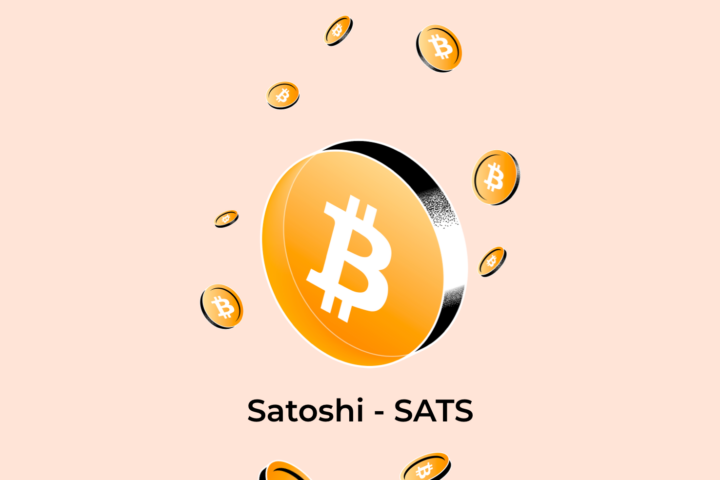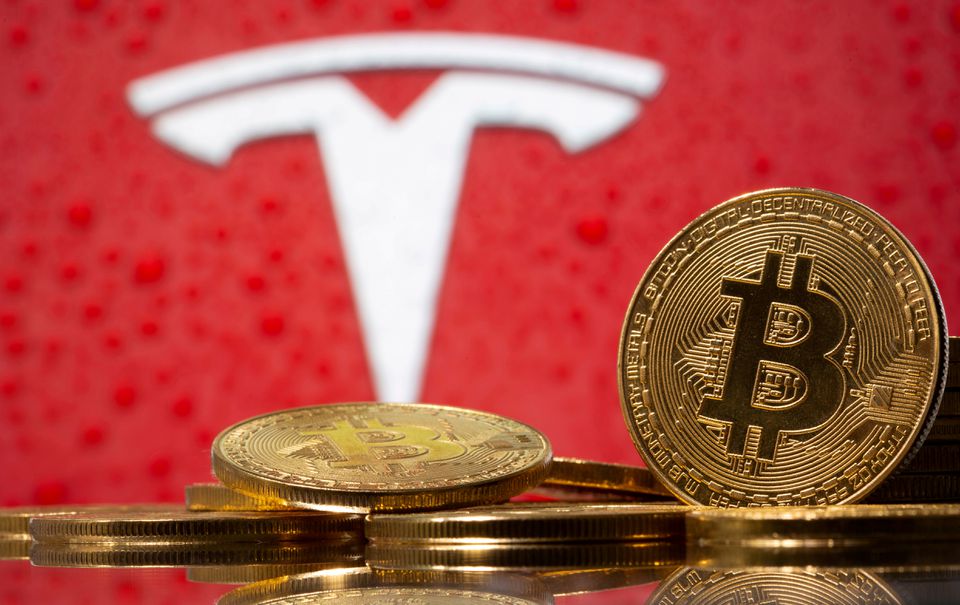Switching to the Satoshi standard and Lightning Network connectivity makes Bitcoin more tangible and easy to use. AAX has made the first move in the crypto space, already providing BTC to SAT
Nium Raises Us$200+ Million Series D And Becomes First Global B2b Payments Unicorn From Southeast Asia
LiveNium’s current valuation is above US$1 billion, making it the first B2B payments unicorn from Southeast Asia. The funding will be used to expand Nium’s payments network infrastructure, drive innovative product development, attract top industry talent, and acquire strategic technologies and companies. Total money raised by Nium to date, including this Series D, stands at nearly US$300 million.
Nium has established its platform as the preferred connection to the global payments infrastructure. Serving hundreds of enterprise clients, and with plans to onboard thousands more, Nium will use the Series D funds to expand its technical infrastructure and add new embedded fintech services. Through a single API, Nium provides access to the world’s payment infrastructure, including technologies for pay-outs, pay-ins, card issuance, and banking-as-a-service. Once connected, Nium customers can send funds to more than 100 countries (most in real-time), pay out in more than 60 currencies, accept funds in 7 currencies, and issue cards in more than 40 countries. Foundational to Nium is its license portfolio, owning the most complete set of money transfer, card issuance and banking licenses in fintech, with services available in 11 jurisdictions.
“We started Nium with the humble goal of taking out regional complexity in cross-border payments,” said Prajit Nanu, Nium’s Co-founder and CEO. “Today, our sights are set higher. We believe we can be a global catalyst to increase global commerce, removing some of the payments friction which has traditionally held businesses back. The Nium platform simplifies the B2B payments experience by enabling critical financial services to be easily embedded – helping today’s local market players become tomorrow’s global giants.”
Nium’s business has significantly scaled in the past year. Nium processes US$8 billion in payments annually. It has issued more than 30 million virtual cards to date. Revenues grew by more than 280 percent year-over-year. With revenues split almost equally across EMEA and APAC, Nium will use funds from this round to accelerate growth in the United States and Latin America. Success will be driven by two recent strategic acquisitions, including the acquisition of travel B2B payments leader, Ixaris, which added comprehensive virtual card issuance capabilities to the Nium platform, as well as the acquisition of Wirecard Forex India Private Limited, which gives Nium greater reach into India’s booming payments market. The Series D investment provides the flexibility to explore additional strategic opportunities.
“Prajit and the incredibly talented team at Nium have redefined payments for the modern era with an infrastructure that finally makes it easy for companies to embed financial services into business and banking applications,” said Francisco Alvarez-Demalde, Co-Founding Partner and Managing Partner, Riverwood Capital. “We could not be more excited about this partnership and look forward to seeing Nium continue to set the standard for how global payments are delivered.”
“Nium has built an extremely rare global footprint of licensed infrastructure that brings the world closer to global real time gross settlement,” added Alex Porto, Principal, Riverwood Capital. “We believe that Nium is on track to be a central component of the global fabric, providing faster and more democratic money movement and we look forward to supporting their growth in this next phase.”
The capital infusion arrives at a time when the global market opportunities for Nium in embedded financial services, cross-border transfers, and card payments are large and rapidly expanding. Nium estimates these global trends to have a total addressable market of nearly US$50 trillion.
Financial Technology Partners (FT Partners) served as exclusive strategic and financial advisor to Nium on its Series D.
PayPal to research blocking transactions that fund extremists and hate groups
LiveThe initiative will be led through ADL’s Center on Extremism and will focus on uncovering and disrupting the financial flows supporting white supremacist and anti-government organizations.
It will also look at networks spreading and profiting from antisemitism, Islamophobia, racism, anti-immigrant, anti-Black, anti-Hispanic, and anti-Asian bigotry.
The information collected through the initiatives will be shared with other firms in the financial industry, law enforcement, and policymakers, PayPal said.
Over the years, the San Jose, California-based company has developed sophisticated systems to help prevent illegal activity and flows through its platform. It hopes to have a positive social impact by sharing some of its capabilities, Aaron Karczmer, PayPal’s chief risk officer and executive vice president, risk and platforms said.
“We’re hoping to have an impact on fighting hatred and extremism, which sadly seems to be surging in society across the globe,” Karczmer said in an interview. “As the son of a Holocaust survivor, I know all too well the real-world impact that comes from hatred and extremist groups.”
In 2020, PayPal teamed up with criminologists and academics to research the payment systems used in the trafficking of illegal firearms and has partnerships with non-profit group Polaris to combat human trafficking through a joint Financial Intelligence Unit.
Over the past several years, PayPal has also been taking action against businesses peddling extremism that were attempting to use its platforms.
As part of the new initiative, PayPal and ADL will also work with other civil rights organizations, including the League of United Latin American Citizens.
Sources: Amazon to accept Bitcoin payments before the end of 2021
Amazon may allow users to pay in cryptocurrencies like Bitcoin soon as the e-commerce giant is hiring a digital currency and blockchain product lead for its payments team.
According to a latest job listing, Amazon’s Payments Acceptance & Experience team is “seeking an experienced product leader to develop Amazon’s Digital Currency and Blockchain strategy and product roadmap”.
An anonymous source within Amazon has reportedly told London business newspaper City A.M. that the e-commerce giant is planning to accept Bitcoin (BTC) payments by the end of 2021, possibly setting the stage for broader mainstream acceptance of crypto transactions.
“This isn’t just going through the motions to set up cryptocurrency payment solutions at some point in the future – this is a full-on, well-discussed, integral part of the future mechanism of how Amazon will work,” the source told City A.M., according to a report published on Sunday.
She indicated that, while Bitcoin is the first step in Amazon’s crypto ambitions, executives at the company were keen to add other established cryptocurrencies in the future. In addition to accepting Bitcoin payments, Amazon is said to be exploring the creation of its own cryptocurrency, possibly as early as 2022, she said.
Speculation about Amazon’s entry into the cryptocurrency market has been raging for days after a new posting for “Digital Currency and Blockchain Product Lead” appeared on the company’s job board last week. As per the job description, the new hire will help develop Amazon’s digital currency strategy and product roadmap. The position requires strong domain expertise in blockchain, distributed ledgers, central bank digital currencies and crypto more generally.
DFS Lab and Stellar Development Foundation Launch Blockchain Bootcamp for African Startups
LiveThe bootcamp is a three-day design sprint allowing participating companies to answer critical business questions with hands-on technical support and guidance from DFS Lab and SDF. Companies will define a problem, storyboard a solution, and develop a rapid prototype of their innovation. This is an exciting opportunity to support the blockchain-oriented ideas of African developers and startups, equip them with practical tools and education, and provide support to create viable solutions that fit local needs.
The most promising solutions will be awarded prizes from 5,000 to 20,000 USDC. There will be opportunities for follow-on funding for additional grants, including potential investment from SDF’s Enterprise Fund and other investors who will be present at the demo day. Interested fintech companies, blockchain native companies, and crypto-curious companies operating in Africa and looking to advance existing services or embed digital asset solutions into their models for the first time are all encouraged to apply before August 20, 2021.
“We are excited to see what role blockchain can play in the future of digital commerce in Africa from cross-border payments to financial inclusion, and we’re excited to offer this opportunity for startups to see where the Stellar blockchain network can benefit them,” said Jake Kendall, Partner at DFS Lab.
Viable use cases that could be explored include cross-border payments, access to financial services, or payment processing. Companies could also explore new models across asset management, compliance, NFTs, gaming, charity donations, trade finance, liquidity, and more.
“We’re thrilled to collaborate with DFS Lab to support early-stage startups building the future of digital commerce in Africa. It’s part of SDF’s effort to increase financial access and inclusion specifically with solutions rooted in local needs and expertise. It’s an honor to be a resource for bootcamp companies building on Stellar. We can’t wait to see how they innovate,” said Denelle Dixon, CEO and Executive Director of Stellar Development Foundation.
Solutions built on Stellar are already being deployed by companies including Franklin Templeton, Samsung, Leaf Global Fintech, Airtm and Tribal. The speed and scale of the Stellar network will enable new opportunities for bootcamp participants and their end users to quickly and easily transfer value, no matter where they are in the world. Stellar’s presence is growing across Africa, particularly in East and South Africa. Companies building the future of digital finance across the continent are encouraged to apply.
About DFS Lab
DFS Lab is an early-stage investor that helps founders build solid foundations and matches the world’s smartest capital with Africa’s most promising founders leading the next generation of digital commerce in Africa. DFS Lab brings both global and local mentorship to its flagship accelerator program, and its portfolio companies have gone on to raise capital from firms like Accel, Anthemis, 500 Startups, Y Combinator, Flourish Ventures, NYCA, and Accion Venture Labs.
About Stellar
Stellar is a decentralized, fast, scalable, and sustainable blockchain network for financial products and services. It is both a cross-currency transaction system and a platform for digital asset issuance, designed to connect the world’s financial infrastructure. Financial institutions and fintechs worldwide issue assets and settle payments on the Stellar network, which has grown to over 5 million accounts. For more information, visit stellar.org.
Crypto miner Core Scientific to go public via $4.3 bln SPAC deal
LiveCore Scientific Holding Co said on Wednesday it would go public through a merger with a blank-check company backed by BlackRock Inc (BLK.N), in a deal that values the cryptocurrency miner at $4.3 billion.
The deal with Power & Digital Infrastructure Acquisition Corp (XPDI.O) will fetch $300 million in cash proceeds, but the companies did not disclose a private investment in public equity (PIPE) round that typically accompanies blank-check mergers.
Core Scientific said it had mined 928 bitcoins in the second quarter and forecast revenues of $493 million and $1.1 billion for fiscal 2021 and 2022, respectively.
The company said it was 100% net carbon neutral and aims to remain so as it grows. Bitcoin is virtual but mining the asset consumes a lot of energy as it is created using high-powered computers around the globe.
New Jersey orders BlockFi cryptocurrency firm to stop offering interest-bearing accounts
LiveNew Jersey ordered the cryptocurrency platform BlockFi Inc to stop offering interest-bearing accounts that have raised $14.7 billion from investors, the state’s acting attorney general said on Tuesday.
A cease and desist order from New Jersey’s Bureau of Securities said BlockFi’s accounts were not registered with that office or exempt from registration, and their sale violated New Jersey securities laws.
Andrew Bruck, the acting attorney general, said the enforcement action against Jersey City, New Jersey-based BlockFi came amid concern about the growth of decentralized finance platforms for investors in digital assets.
According to the order, investors can buy BlockFi Interest Accounts by depositing cryptocurrencies such as Bitcoin and Ethereum with the company, which uses them to fund lending operations and proprietary trading.
The order said BlockFi offers yields from 0.25% to 7.5%, depending on how much and which assets are deposited.
In contrast, the average interest rate for savings accounts nationwide was 0.06% on June 30, according to Bankrate.com. BlockFi’s accounts lack federal deposit insurance.
“Our rules are simple: if you sell securities in New Jersey, you need to comply with New Jersey’s securities laws,” Bruck said in a statement. “No one gets a free pass simply because they’re operating in the fast-evolving cryptocurrency market.”
The order takes effect on July 22, and does not affect existing BlockFi Interest Accounts. Bruck said BlockFi does not offer the accounts in New York and some other jurisdictions.
Elon Musk: Tesla will ‘most likely’ restart accepting bitcoin as payments
LiveBitcoin was up 8% at $32,160.16, while ether surged 11.6% to $1,993.36. Tesla’s shares were down 0.8% at $655.30 in extended trading.
Musk’s comments at the B Word conference come after Tesla said in May it would stop accepting bitcoin for car purchases, less than two months after the company began accepting the world’s biggest digital currency for payment.
“I wanted a little bit more due diligence to confirm that the percentage of renewable energy usage is most likely at or above 50%, and that there is a trend towards increasing that number, and if so Tesla would resume accepting bitcoin” Musk said.
“Most likely the answer is that Tesla would resume accepting bitcoin.”
The use of bitcoin to buy Tesla’s electric vehicles had highlighted a dichotomy between Musk’s reputation as an environmentalist and the use of his popularity and stature as one of the world’s richest people to back cryptocurrencies.
Some Tesla investors, along with environmentalists, have been increasingly critical about the way bitcoin is “mined” using vast amounts of electricity generated with fossil fuels.
More digital currency miners, however, are making attempts to use renewable energy to mitigate the impact on the environment.
“Tesla’s mission is accelerating the advent of sustainable energy. We can’t be the company that does that and also not do appropriate diligence on the energy usage of bitcoin,” Musk said.
Musk added that he personally owned bitcoin, ethereum and dogecoin, apart from bitcoin that Tesla and SpaceX owned.
“I might pump, but I don’t dump,” Musk said. “I definitely do not believe in getting the price high and selling … I would like to see bitcoin succeed.”
US Presidential Advisory Group to Discuss Stablecoins
LiveThe President’s Working Group on Financial Markets plans to discuss stablecoins at a meeting on July 19, the U.S. Treasury Department announced Friday.
Treasury Secretary Janet Yellen is convening the working group, which consists of major financial regulatory agency heads, to examine stablecoin regulation and risks, and to find suggestions for future work around this issue. The President’s Working Group is an interagency entity tasked with monitoring the U.S.’s financial markets.
In the press release announcing the meeting, Yellen said the meeting could help protect users, markets and the broader financial system from any risks that stablecoins pose, while still enabling the government to “assess the potential benefits.”
“In light of the rapid growth in digital assets, it is important for the agencies to collaborate on the regulation of this sector and the development of any recommendations for new authorities,” she said.
The group expects to publish written recommendations in the near future.
The President’s Working Group already published one document about stablecoin regulation in December, which examined retail payments and sought public feedback on how these types of payments are being used.
The December statement warned there may be risks around stablecoins, particularly with regard to end user rights, know-your-customer and anti-money laundering issues, market integrity and monetary stability.
Federal Reserve Chairman Jerome Powell, Securities and Exchange Commission Chair Gary Gensler and Commodity Futures Trading Commission Acting Chair Rostin Behnam will also be part of Monday’s meeting. While the December iteration of the group asked former Acting Comptroller Brian Brooks to weigh in on its report, it’s unclear whether current Acting Comptroller Michael Hsu will be a part of any future recommendations.
The news comes just after Powell told Congress that greater regulations are needed around stablecoins before they can become a significant part of U.S. payments networks.
“Stablecoins certainly have some advantages in terms of faster payment systems and have some attributes of CBDCs [central bank digital currencies] but there are some risks with stablecoins right now,” Powell told the House of Representatives Committee on Financial Services. “I think the issue is that stablecoins are a lot like money market funds or bank deposits or a narrow bank.”
Revolut raises $800 million in Series E funding, valuing the business at $33 billion
LiveRevolut, the financial superapp with more than 16 million customers worldwide, today announced an $800m series E funding round, valuing the business at $33 billion. The new funding round brings onboard two new investors, SoftBank Vision Fund 2 and Tiger Global Management.
The investment will enable the company to further its growth plans, in particular its ongoing product innovation aimed at meeting customers’ everyday financial needs and aspirations, from quick and easy global transfers, to managing everything from savings to insurance, to democratising wealth and trading. It will also support the expansion of Revolut’s offering to US customers and its entry to India and other international markets.
Commenting on the fundraise, Nikolay Storonsky, Founder & CEO of Revolut said, “SoftBank and Tiger Global’s investments are an endorsement of our mission to create a global financial superapp that enables customers to manage all their financial needs through a single platform. This funding round makes Revolut the UK’s most valuable fintech, demonstrating investors’ confidence that we can deliver products that raise the bar for customers’ expectations across the whole financial services industry.
Mr. Storonsky added, “We want our global superapp to offer our customers 10x better value and 10x better service and security than they can achieve anywhere else. We are building a full financial product suite in a single app, where you will always find the product that best meets your needs. Our services will be increasingly personalised, responding to our customers’ daily needs, always with low and transparent fees. As we expand into new markets we are encouraged by our customers’ enthusiasm for Revolut and we look forward to using this investment to further our mission.”
Karol Niewiadomski, senior investor for SoftBank Investment Advisers, said “Revolut’s rate of innovation has redefined the role of financial services, placing Revolut at the forefront of Europe’s nascent neobanking sector. The company’s rapidly growing user base reflects a sustained demand for Revolut’s expanding suite of services. We look forward to supporting Nikolay and the team in continued product innovation and bringing their services to new markets globally.”
Scott Shleifer, partner, Tiger Global said: “We believe Revolut’s superior customer experience and focus on rapid product development put the company in a strong position to continue scaling in both existing and new geographies. We are excited to partner with Nik and the Revolut team as they build the next generation of financial services.”
The Rt Hon Rishi Sunak MP, UK Chancellor of the Exchequer, said:
“It’s great news that Revolut has raised a further $800m and plans to expand even further – creating more jobs here in the UK.
“We want to see even more great British Fintech success stories like Revolut, which is why I’ve published a roadmap setting out how we will ensure the UK sector remains competitive, forward-looking, and dynamic.”
JPMorgan Chase Survey: Business Leaders’ Optimism, Growth Expectations Soar Past Pre-Pandemic Levels
LiveNearly 9 in 10 business leaders (88%) are optimistic about their company’s performance for the next six months, the highest percentage recorded in 11 years of the survey, and up from 56% one year ago at the height of the pandemic in the U.S. Survey participants are also feeling confident about the industry they’re in: 82% are optimistic about their industry’s performance, a significant jump from 45% a year ago.
This rising confidence extends to the broader economy as well. Three-quarters of respondents are optimistic about the local (76%) and national economy (75%), each representing an increase of at least 40 percentage points from a year ago. Optimism about the global economy, which has traditionally been more muted, is at its highest level (53%) since 2018, up from just 17% last summer.
The rosy outlook is driving ambitious growth plans for companies: the majority (80%) anticipate a rise in revenue/sales, and close to half (46%) expect to increase investments in capital expenditures, up from 18% one year ago. In line with these growth plans, nearly 4 in 10 businesses (38%) expect an increase in credit needs for the remainder of 2021.
“After enduring the challenges of the last year and a half, businesses are feeling overwhelmingly positive about what’s ahead,” said Jim Glassman, head economist, JPMorgan Chase Commercial Banking. “The focus now is on navigating growing pains to harness the momentum of the economic recovery, which is comparatively a good problem to have.”
Businesses’ Pandemic-Related Changes Are Here to Stay
The disruptions brought on by the pandemic forced businesses to adapt quickly and evolve their business models, with some of these changes expected to be permanent. The top strategic actions business leaders have taken include:
- Introducing New Offerings: The majority (61%) have diversified and strengthened their offerings by delivering new product and service lines, with many planning to maintain these products and services post-pandemic.
- Digitizing Operations: 39% of businesses expanded their e-commerce capabilities as more customers shopped online, and 38% digitized their accounts payables and receivables processes to boost efficiency.
- Expanding Geographically: In addition to reaching customers via new digital channels, 38% of businesses expanded into new geographic markets.
“Businesses are proving yet again that when put to the test, they adapt, innovate and rise to the occasion – and in many cases, become stronger and gain market share,” said John Simmons, head of Middle Market Banking & Specialized Industries, JPMorgan Chase Commercial Banking. “We’re working with our clients to help chart a path forward and lean into new opportunities, from digitizing manual back-office processes to evaluating strategic transactions like a merger or sale.”
Supply Chain Issues Are a Top Challenge
Businesses’ supply chains were hit particularly hard by the events of the past year and a half, and ongoing supply chain issues top the list of challenges for the year ahead. Companies report having to utilize new suppliers, digitize back-office functions and manage their supply chain remotely, with many of them planning to maintain these changes in the future.
Other challenges cited by business leaders include uncertain economic conditions and sustaining revenue and sales growth. Businesses are also contending with the reality of a tight labor market as the large majority (81%) hope to hire more workers in the next six months, especially as large numbers of experienced Baby Boomers retire.
Cybersecurity is also a growing concern, as one-third of companies report being directly impacted by a cyberattack or fraud since March 2020. Among the businesses that have experienced attacks, 79% say employee education and training has been the most helpful mitigation tactic, and 56% say proactive countermeasures, including deploying new technologies, have been beneficial.
The New Workplace
With pandemic-related restrictions recently lifted or modified in many parts of the country, businesses are reevaluating their working models. Thirty-eight percent expect all employees to return to on-site work, while one in four respondents (26%) are newly implementing a flexible working model. Of the businesses that are taking a flexible approach, preserving company culture is a top concern, followed by maintaining productivity levels.
Looking Forward
Companies should factor the following considerations into their business plans to position themselves for success in the year ahead:
For more information on the 2021 Business Leaders Outlook Pulse survey, please visit jpmorgan.com/2021midyearoutlook.
Survey Methodology
JPMorgan Chase’s Business Leaders Outlook Pulse survey was conducted online from June 7-18, 2021, for middle market companies with annual revenues between $20 million and $500 million. In total, 1,375 business leaders in various industries across the U.S. participated in the survey. For year-over-year trends, current data is compared with data collected in the second quarter of 2020. The results of this online survey are within statistical parameters for validity, and the error rate is plus or minus 2.6%, at a 95% confidence level.














